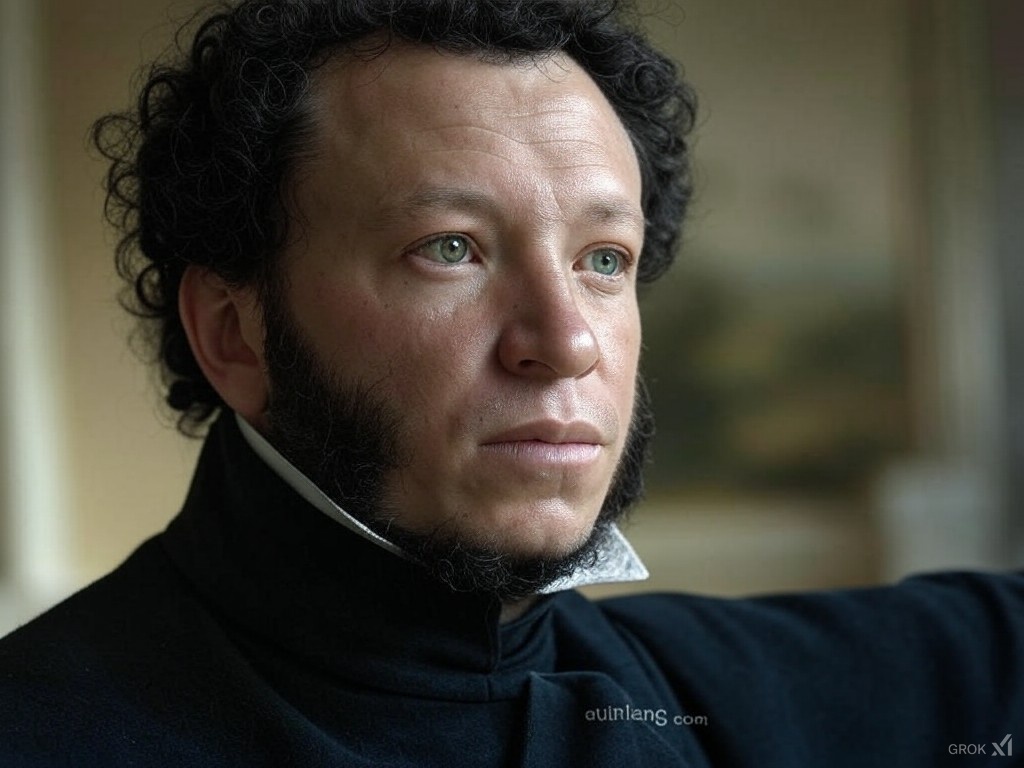I loved you

I loved you was written by Alexander Sergeyevich Pushkin in Russian originally in 1829.
Understand
This poem is about unrequited love.
The speaker confesses that he once loved the person deeply and sincerely, and though his feelings may have faded, they are not completely gone.
However, he does not want to cause any pain or disturbance.
He describes his silent and hopeless love, filled with both shyness and jealousy.
In the end, he wishes the person happiness and hopes they will be loved as sincerely and tenderly by someone else.
The poem reflects deep emotions, selflessness, and farewell.
Text
Each sentence has all the information needed to fully understand it, with each color showing a specific aspect:
- Translation
- Sentence in English.
- Original Sentence
- Sentence in Russian.
- Words sequence
- Each word meaning and origin.
1/6
I loved you:
2/6
love may not have died out completely in my soul;
3/6
But let it not disturb you any more;
4/6
I do not want to sadden you with anything.
5/6
I loved you silently, hopelessly, sometimes tormented by timidity, sometimes by jealousy;
Я вас любил безмолвно, безнадежно, то робостью, то ревностью томим;
6/6
I loved you so sincerely, so tenderly, as God grant you to be loved by others.
Я вас любил так искренно, так нежно, как дай вам Бог любимой быть другим.

Alexander Sergeyevich Pushkin
Russia 1799 - Russia 1837
Russian author, known as Александр Сергеевич Пушкин
Themes and Interpretation
Unrequited Love and Self-Sacrifice
The poem centers on a love that is not returned, yet the speaker chooses to let go for the sake of the beloved's peace. His love, though deep and sincere, is offered without expectation, showing the nobility of selfless affection.
Enduring Emotion Despite Fading Passion
While the speaker hints that his intense feelings might have diminished over time, the remnants of that love remain genuine and cherished. This duality captures the bittersweet nature of past emotions—still alive in memory even as they lose their former intensity.
Emotional Vulnerability and Resignation
The speaker reveals a profound vulnerability, describing his love as both silent and hopeless, marked by moments of shyness and jealousy. This openness reflects the inner turmoil of unfulfilled desire, yet he ultimately resigns himself to the situation for the greater good of the beloved.
The Act of Letting Go for Another's Happiness
In an admirable gesture, the speaker wishes that his love no longer troubles the one he adores. By stepping away, he not only protects her from potential sorrow but also expresses a hope that she finds love that brings her true happiness—even if that love belongs to someone else.
Timeless and Universal Nature of Love
Even in the face of personal heartache, the poem speaks to the universal experience of loving deeply without possession. The sincerity and purity of his feelings resonate as a timeless exploration of love’s complexity, where true affection is measured by the willingness to wish well for another, regardless of personal sacrifice.
Summary
These themes paint a picture of love that is both profound and self-effacing—a poignant reminder that sometimes the most genuine expression of love is found in the courage to let go.